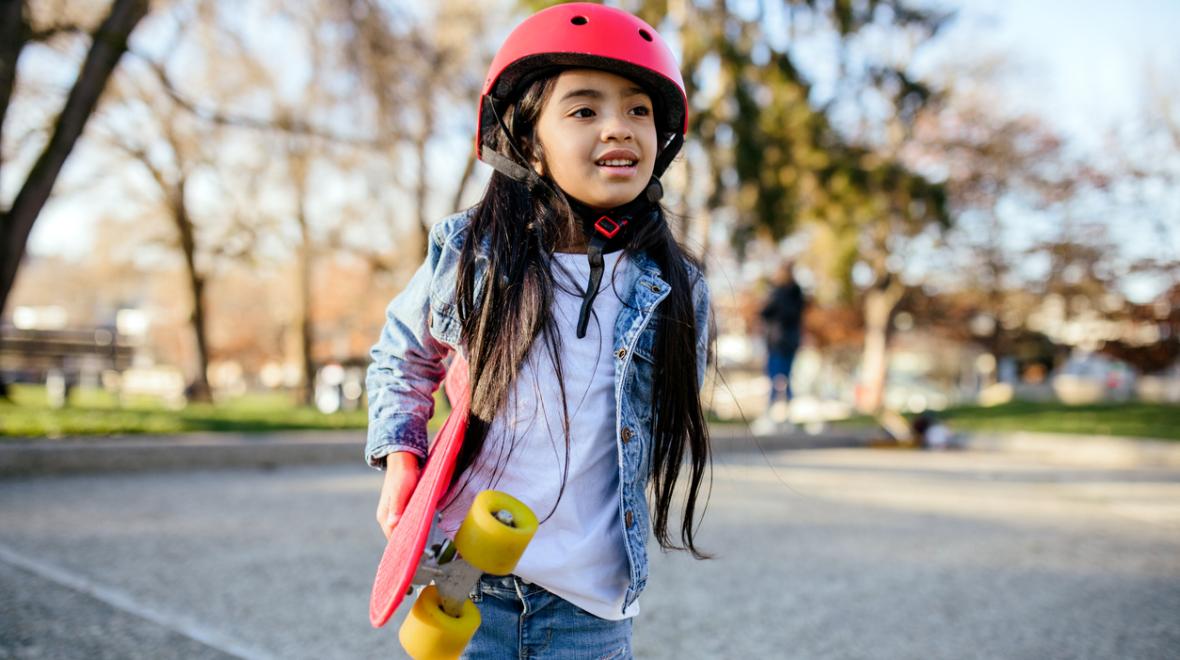
Photo:
iStock
The Journal of Pediatrics published a commentary article titled “Decline in Independent Activity as a Cause of Decline in Children’s Mental Well-Being.”
If that sounds like a headline that free-play advocates have been touting forever — it is. But now, it’s being published in a prestigious medical journal read by thousands of pediatricians. That’s groundbreaking!
The authors are three prominent researchers in child development: David Lancy, Ph.D., from the Department of Anthropology at Utah State University; David Bjorklund, Ph.D., from the Department of Psychology at Florida Atlantic University; and Let Grow cofounder Peter Gray, Ph.D., a professor in the Department of Psychology and Neuroscience at Boston College. Their headline?
|
For more support and resources surrounding the youth mental health crisis, screen time and social media, and the importance of play, visit ParentMap’s Antidote for the Anxious Generation page. |
Kids’ happiness in the long run — and short run — is on the line.
The coauthors’ piece summarizes a wide swath of evidence indicating that a major (but not sole) cause of the increase in anxiety, depression and suicidal thoughts among young people over recent decades is correlated to the continuous decline in opportunities for children to play and roam independently from their parents and caregivers.
Reversing this trend — STAT! — is key, as “children who have more opportunities for independent activities are not only happier in the short run, because the activities engender happiness and a sense of competence, but also happier in the long run, because independent activities promote the growth of capacities for coping with life’s inevitable stressors.”
The piece drew the attention of Emily Oster, Ph.D., the author of best-selling books on data-driven parenting, including “Expecting Better: Why the Conventional Pregnancy Wisdom Is Wrong — And What You Really Need to Know.” Oster addressed the commentary on her website, noting that, indeed, it is indisputable that kids are less free and less trusted to be competent, responsible and resourceful young adults than youths were in the 1980s:
You can see this even in something like “The Baby-Sitters Club.” The seventh-graders in these books — published from 1986 to 2000 — are babysitting for young infants, including at night, making dinner, cleaning the house, and so on. The feel of the world is somewhat different than what many of us experience with our children now.
Why are trust, responsibility and independence so crucial to kids’ mental health?
Because that’s how they get a sense of what they can handle, a sense of who they are in the world: a competent, growing person — not a baby or a bonsai tree.
Stop taking away the mini milestones of independence.
Think about a time when you were trusted by your parents or another adult to do something without them — come home by dinnertime, run an errand, walk your sister to school …
These are milestones we don’t see as milestones, because such actions seem so minor. But those are the milestones that mark the path to maturity. Take them away, and kids are stuck in baby mode, feeling helpless and needy.
And depressed and anxious.
The Journal of Pediatrics article talks about how important it is to have an “internal locus of control” — a sense that you can make things happen as well as deal with problems that arise. An “external locus of control” — as I think you can guess — is the feeling that someone or something else is in the driver’s seat. (And you’re strapped into a 5-point harness.)
Our culture accidentally has swapped out childhood freedom and responsibility for adult-directed activities. We thought we were eliminating risk, we thought we were making our kids happy.
We went too far.
These are the steps we can take now.
The Journal of Pediatrics article concludes that “concern for children’s safety and the value of adult guidance needs to be tempered by recognition that children need ever-increasing opportunity to manage their own activities.”
How?
Well, individual parents can reassess whether perhaps they are being almost “too helpful” when their kids are ready to do more themselves. Pediatricians can explain to parents that a risk-free life carries huge risks of its own. Schools can create more independent kids by assigning The Let Grow Project, in which kids get homework assignments such as “Go home and do something new, on your own.” Schools can also start Let Grow Play Clubs, where kids get free, unstructured, no-devices playtime back in their lives.
And anyone so inclined can help get more “Reasonable Childhood Independence” laws passed. These laws say that giving your kids some unsupervised time isn’t neglect unless you put them in obvious danger. Several states down — plenty more to go!
The message through all of this — including, now, presented clearly in a peer-reviewed journal — is simple: When adults step back, kids step up.
More from Lenore Skenazy
|
Editor’s note: This article was first published on Let Grow, which provides free materials for schools and parents to promote childhood independence and resilience. It is reprinted here by permission, and was updated in February 2025 with new resources and photography by ParentMap’s editorial team.
More resources for raising capable kids: |












